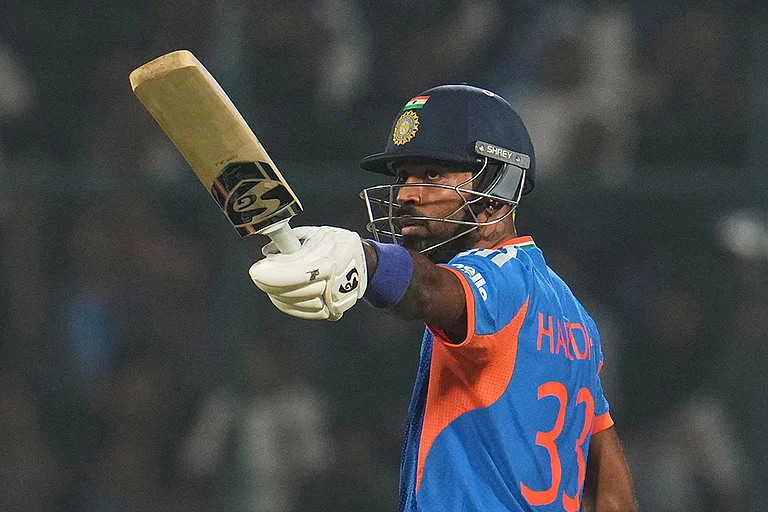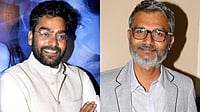On Monday, September 25, talk show producers initiated the efforts to finally revoke the Hollywood industry nearly after a five-month strike by writers. Reportedly, the Hollywood writers’ strike is seeming to see an end. As per a report in Reuters, the Writers Guild of America (WGA), which represents around 11,500 writers in the film and television sector, has come to a three-year agreement with several major studios on September 24. However, the deal still needs a final nod from the union's leadership and its members.
But if the writers receive the official approval from the Guild, late-night and daytime talk shows could restart production, sometime within the next few days or weeks. For instance, "The Drew Barrymore Show" is aiming to go back on the air next month while
Other late-night programs like "Saturday Night Live" and "The Tonight Show with Jimmy Fallon" are still not certain about the schedules of them broadcasting new episodes.
For scripted series, filming would only commence after the SAG-AFTRA actors union strikes a deal with the studios. The actors went on strike in July, with an aim to get their wages increased with restrictions on the use of artificial intelligence in on-screen roles.

While Hollywood and its audience waits for an update on the entire situation, here’s a timeline of the key moments that have led to the strike.
March 7: The Writers Guild of America made an announcement that 99% of its members voted in favor of demands, including the calls for increased pay, better residuals, protections from artificial intelligence job interference and other.
March 20: Negotiations between the WGA and AMPTP kick off but eventually are put on hold.
May 1: Writers and studios could not strike a deal for a new contract within the set deadline, which eventually leads to the start of the WGA strike. The strike was approved by a 97.9% vote and soon ended up getting support from several actors as well.
May 2: The strike’s work stoppage starts and several late-night programs such as Saturday Night Live, Jimmy Kimmel Live!, The Tonight Show Starring Jimmy Fallon and The Late Show With Stephen Colbert, were put on a hold.
May 5: Warner Bros. Discovery CEO David Zaslav mentioned “everybody deserves to be paid fairly” and that his aim is to resolve the strike where writers feel valued and fairly compensated
May 11: Jeopardy! host Mayim Bialik comes out in support of writers and exits the final week of filming the show’s 39th season. He joined Drew Barrymore, who stepped down as the host of this year’s MTV Movie & TV Awards.
June 5: Nearly 98% of the Screen Actors Guild — American Federation of Television and Radio Artists – stated that they would strike if a deal with the AMPTP is not reached by June 30.

June 23: The Directors Guild of America agrees for a contract with AMPTP for wage increases, and better residuals.
July 11: A report from Deadline cited one unnamed studio executive as saying, “The endgame is to allow things to drag on until union members start losing their apartments and losing their houses”. However, the AMPTP refuted the report.
July 13: SAG-AFTRA joined the WGA to authorise its own strike, thereby putting several movies and TV shows on indefinite holds. In fact, due to the SAG-AFTRA strike, the cast Christopher Nolan’s ‘Oppenheimer’ walked out of the film’s U.K. premiere. Disney CEO Bob Iger, however, reacted by saying that writers and actors were not being “realistic” with their expectations.
July 24: Social media influencers are informed that they would be barred from SAG-AFTRA if they work with blacklisted studios or streaming services during the strike period.
August 4: WGA representatives conduct a meet with the studios but fail to reach a deal. While it was revealed that AMPTP was keen to increase offers on "few writer-specific TV minimums and talk about AI", but was not open to other screenwriters' issues and proposals.
August 9: The WGA strike finally reached its hundredth day, with no near sigthed end.
September 24-25: Finally after almost five months, there have been reports that an end to the strike might be near with Writers Guild of America (WGA) reaching a three-year agreement with several major studios.
For those caught unaware, the current WGA strike is one of the longest that Hollywood has seen. Not just increased pay, Artificial intelligence is also a concern for writers and actors, and hence, SAG-AFTRA has called for AI permission guidelines to product the creative freedom of both writers and actors.


























